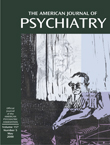Placebo-Controlled Trial of Glycine Added to Clozapine in Schizophrenia
Abstract
OBJECTIVE: The purpose of this study was to evaluate the effects of high-dose oral glycine on positive and negative symptoms and cognitive function when added to clozapine in adults with schizophrenia.METHOD: The authors conducted a double-blind, placebo-controlled, parallel-group trial of 60 g/day of glycine added to clozapine for 8 weeks in 30 adults with schizophrenia. Clinical ratings were performed every 2 weeks.RESULTS: Twenty-seven patients completed the trial. Glycine augmentation of clozapine produced no statistically significant change in positive or negative symptoms or cognitive functioning. No subjects showed clinically significant worsening of clinical ratings.CONCLUSIONS: These data, combined with data from previous trials with d-cycloserine and glycine, suggest that agonists at the glycine site may be less effective when combined with clozapine than they are when combined with conventional antipsychotics.



